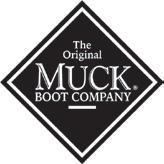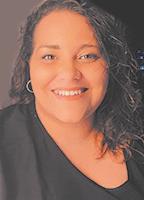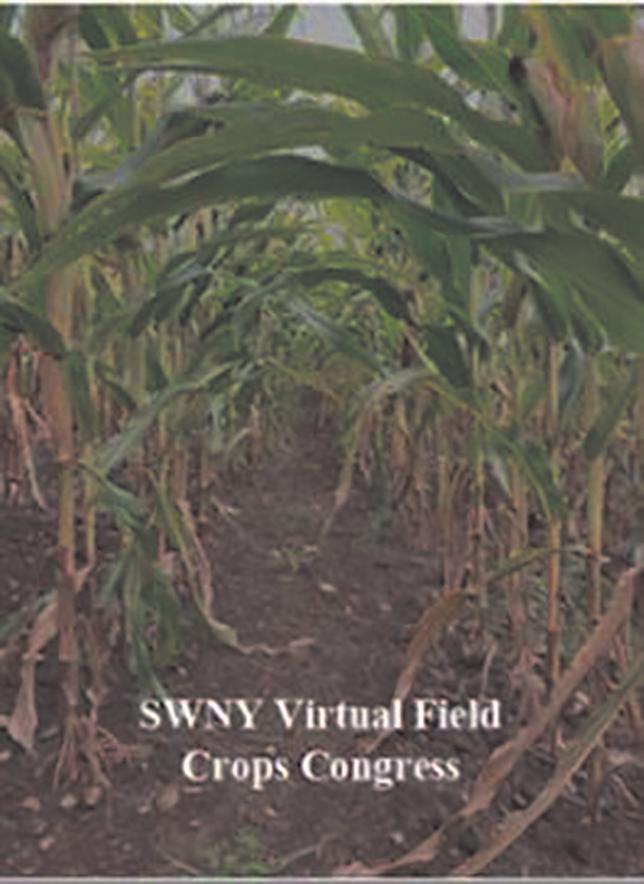NUTRITION AT CORNELL COOPERATIVE EXTENSION Working
-BY LAURA HUNSBERGER AND EMILY REYNOLDS
JAMESTOWN, NEW YORK (February 17, 2023)
– You may know of Cornell Cooperative Extension of Chautauqua County (CCE Chautauqua), for their 4-H programs & seeing kids show animals at the county fair, and for the support provided to the Agricultural Community. But did you know that it also has not one, but two wonderful nutrition programs that are distinct, yet complementary to each other?
The Expanded Food and Nutrition Program (EFNEP) and Supplemental Nutrition Assistance Program (SNAP-Ed) provide nutrition education to low-income families. The EFNEP program just celebrated its 50th anniversary! It officially became a national Federal program in 1969 and is offered through Cooperative Extension Offices in all 50 States and Territories. SNAP-Ed started about twenty years later and was formerly known as Eat Smart New York (ESNY). These two programs have worked closely for decades to improve the lives of tens of thousands of low-income individuals through interactive workshops, and lessons for improving nutrition, physical activity, food safety and budget skills.
Why are there two programs? Well, EFNEP works with the adult population of families and other caregivers primarily responsible for
Hard to Make a Difference
feeding young people aged 5-19. While SNAP-Ed also works with adults, this program works directly with the youth and children from the ages of 5 and up that are recipients of SNAP benefits or eligible to receive SNAP benefits (formerly called food stamps.)
There are many benefits to offering two programs in a high-need county like Chautauqua. Our participants tell stories about their empowerment when they understand the benefits of eating more nutritious foods, increasing their physical activity levels, reading food labels, and making educated budget decisions that help their families. Our educators have such a variety of programming that you may find them working at farmer’s markets, food pantries, faith-based organizations, libraries, or schools in any given week. The nutritionists have fun teaching and preparing healthy, affordable recipes, demonstrating, and having classes where the participants prepare the recipes with the educator. If you or your organization would like to schedule an EFNEP or SNAP-Ed nutrition workshop, please call 716-664-9502.
Why are we telling you this? Well, CCE Chautauqua has an opening for a EFNEP Educator! The educator primarily delivers established EFNEP programming to improve healthy food and lifestyle choices among families throughout Chautauqua County.
Audubon Opens 2023 Nature Photography Contest
This position is located in Dunkirk and is a full-time, grant-funded position. All applications must be submitted online by February 21, 2023, online only. Visit https://chautauqua.cce.cornell.edu/jobs for details and to apply. Contact Kimberly at wsbnrecruiter@cornell. edu with questions.
The Nutrition Program is one of many programs offered by Cornell Cooperative Extension of Chautauqua County (CCE-Chautauqua). CCE-Chautauqua is a subordinate governmental agency with an educational mission that operates under a form of organization and administration approved by Cornell University as agent for the State of New York. It is tax-exempt under section 501(c)(3) of the Internal Revenue Code. The association is part of the national cooperative extension system, an educational partnership between County, State, and Federal governments.
As New York’s land grant university Cornell administers the system in this state. Each Cornell Cooperative Extension association is an independent employer that is governed by an elected Board of Directors with general oversight from Cornell. All associations work to meet the needs of the counties in which they are located as well as state and national goals. For more information, call 716-6649502 or visit our website at www.cce.cornell.edu/chautauqua. Cornell University Cooperative Extension provides equal program and employment opportunities.
Now is the time to catch beautiful winter images for Audubon Community Nature Center’s 2023 Nature Photography Contest. With $1,600 in prize money, Youth and Adults compete in the categories of Animals, Plants, Landscapes and Community Choice.

Jamestown, N.Y. – Submissions are now being accepted for the Audubon Community Nature Center (ACNC) 2023 Nature Photography Contest. With a total of $1,600 in prize money, adults and youth ages 8 – 18 each have four ways to win $200 for their nature photographs. A panel of judges will choose the adult and youth winners as well as three honorable mentions in the categories of Animals, Plants and Landscapes. All winners receive a $200 cash prize. Two additional $200 cash prizes will be awarded to the Adult and Youth photos receiving the most Community Choice votes online. A
photo could receive both the Community Choice and a judged award.

Winning and honorable mention photographs will be displayed on the contest website. ACNC will print the winners to exhibit in the Nature Center, and winners and honorable mentions will be announced in a news release that is widely distributed, including to their local media when known.
Full details of the competition are at GoGoPhotoContest.com/ACNCPhotoContest2023, where you can submit photos and see the 2022 contest winners.
The sooner photographs are submitted, the longer the public can vote for them
for the Community Choice awards. Photographers are reminded to encourage friends and family to vote for their photo(s). All the social media buttons are right there for postings. Deadline for submissions is Sunday, July 2, 2023. Audubon Community Nature Center builds and nurtures connections between people and nature by providing positive outdoor experiences, opportunities to learn about and understand the natural world, and knowledge to act in environmentally responsible ways. To learn more, visit AudubonCNC.org.
2023 24 FEBRUARY
Photo Submitted
Pictured is 2022 Youth Honorable Mention “Downy in a Magnolia” by Abigail Bullaro of Panama, New York.
DEC Announces $1.35 Million for the Second Round of the Forest Conservation Grant Program
Forest Conservation Easements for Land Trusts Grant Program Helps Protect Forests from Potential Development
New York State Depart-
ment of Environmental Conservation (DEC)
Commissioner Basil Seggos today announced the second round of competitive grants for the Forest Conservation Easements for Land Trusts (FCELT) Grant Program. In partnership with the Land Trust Alliance, a total of $1.35 million in grant funding is available for DEC to award to eligible, accredited land trusts to purchase conservation easements on forested land for the purpose of protecting these lands from future development. The goal of the grant program is to increase the pace of forest land conservation to keep forests as forests and combat climate change.
“Protecting and managing forests is essential to the state’s efforts to combat climate change and we commend partners like the Land Trust Alliance for helping to implement programs that protect our vital forest resources,” said Commissioner Seggos.
“These grants are just one tool DEC is using to advance the state’s forest conservation goals, implement the Climate Leadership and Community Protection Act Scoping Plan recommendations, and protect the state’s biodiversity for future generations. I encourage land trusts to apply for these grants and help us conserve New York’s forests.”
Applicants may apply for up to $350,000 to fund the acquisition of conservation easements on forest land in New York State. To apply, a 25 percent match of grant funding is required and land trusts must be accredited by the Land Trust Accreditation Commission.
“We must increase the pace of land conservation to help prevent the worst effects of climate change and to make progress on achieving the critical goals laid out in the Climate Leadership and Community Protection Act Scoping Plan,” said Jennifer Miller Herzog, the Land Trust Alliance’s Chief Program Officer. “This new round of funding to help protect New York’s forests signals a strong commitment to protecting the health and wellbeing of New Yorkers and the environment. The Forest Conservation Easements for Land Trusts program leverages the strengths and expertise of local land trusts and their ability to work with willing landowners to keep their forests as forests. We are proud to partner with DEC to help continue this innovative approach to protecting one of our most important natural resources. On behalf of the Land Trust Alliance, I applaud Governor Kathy Hochul, Senate Majority Leader Andrea Stewart-Cousins, Assembly Speaker Carl Heastie and DEC Commissioner Seggos for their work
toward ensuring the continued availability of clean water, outdoor recreation and economic opportunity in the face of climate change.”
Funding for the grant program is provided by the State’s Environmental Protection Fund (EPF).
Governor Hochul’s 2023-24 Executive Budget sustains the EPF at a historic $400 million. The EPF provides funding for critical environmental programs such as land acquisition, farmland protection, invasive species prevention and eradication, enhanced recreational access, water quality improvement, and an aggressive environmental justice agenda.
FCELT grants will further goals/strategies identified in the New York State Open Space Plan, the New York State Wildlife Action Plan, the New York State Forest Action Plan, and/ or other local, regional or statewide land protection plans.
The program has a twostep application process which includes a pre-application and a full application. Pre-applications are now being accepted and are due by May 11, 2023. Full applications are by invitation only. Applicants invited to submit a full application will be notified by June 13, 2023. Full applications are due by July 28, 2023. Complete details about this grant opportu-

nity including eligibility requirements and other program elements can be found on the FCELT webpage of the Land Trust Alliance website.
Privately owned forest lands cover 13.62 million acres and represent 74 percent of New York’s forests. More than 10 million acres are considered family-owned or non-corporate forests. These nearly 700,000 private forest landowners help support clean air and water protection, carbon sequestration, wildlife habitat conservation, and grow the state’s forest-based economy. The FCELT provides resources to combat leading threats facing the states forests and to keeping privately-owned forests healthy and intact.
About the Land Trust Alliance
Founded in 1982, the Land Trust Alliance is a national land conservation organization that works to save the places people need and love by strengthening land conservation across America. The Alliance represents more than 950-member land trusts and their 6.4 million supporters nationwide. The Alliance is based in Washington, D.C., and operates several regional offices. More information about the Alliance is available on the Land Trust Alliance website
How crafting benefits kids
Kids have boundless energy. Parents of young children can look to various activities to harness that energy, and crafting is one endeavor that makes use of kids’ enthusiasm and creativity. Craft projects are more than just a means to getting energetic youngsters to sit down and focus their attention. Crafting pays various dividends for youngsters, some of which may surprise parents.
Crafting and hand-eye coordination
Crafting helps children develop hand-eye coordination. The Illinoisbased North Shore Pediatric Therapy notes that crafts
that involve drawing shapes, cutting patterns and writing require youngsters to use their fine motor coordination. Coloring, drawing and cutting also require children to use their hands together, helping to develop and strengthen their handeye coordination. That development can help kids perform a host of additional tasks, including tying shoes, buttoning coats and eating independently.
Crafting and creativity
Crafting presents a great opportunity for kids to explore their creativity. The American Academy of Pediatrics urges parents to prioritize creative,
unplugged playtime for infants and toddlers, and that can include time devoted to craft projects. Craft projects can include more complicated undertakings in which kids follow directions, or they can simply allow kids to create something from their own imaginations. Each type of project involves creating something new and encourages kids to develop their creative skills.
Crafting and patience
Parents know that patience is not necessarily a virtue of young children. Craft projects, particularly those that require cutting and gluing, do not provide instant gratification because they require multiple steps and time to dry before they’re completed. North Shore Pediatric Therapy notes that such projects teach kids self-regulation because
POLONCARZ STATEMENT ON FIRINGS AT TESLA BUFFALO GIGAFACTORY PLANT
Today, Erie County Executive Mark C. Poloncarz issued the following statement pursuant to the Tesla Buffalo Gigafactory plant abruptly firing thirty employees who had been seeking to form a union. The employees had announced their plans to unionize on Tuesday and received an email informing them of their termination on Wednesday night.
Erie County Executive Mark C. Poloncarz said, “I was shocked to learn Tesla fired 30 workers today after Tesla Workers United began organizing efforts at Tesla's Buffalo Gigafactory. I have always stood shoulder-toshoulder with the men and women of organized labor and do so today with the fired workers.
It is unacceptable for any
they require youngsters to exhibit self-control and patience until the project can be considered finished.
Crafting and the classroom
A 2018 report from the AAP noted that children who use their hands are strengthening areas in the brain that are associated with spatial and mathematical learning. This is an important benefit of crafting and one that the AAP report notes is not gained by kids who forgo physical activities like crafting for play that relies on interactive media. The benefits of crafting associated with spatial and mathematical learning could help younger children once they begin their academic careers.
Crafting is a fun activity for kids and it’s also one that benefits their development in some surprising ways.
employer to fire workers who are pursuing better working conditions for themselves and their families, and it is even more egregious in the case of a multi-billion-dollar corporation such as Tesla. These terminations send the message that Tesla has no respect for labor or their workforce and, even worse, has no interest in providing a workplace in which employees feel valued and heard. Even more egregiously, these terminations occurred at a facility that received millions of dollars in assistance from New York, a facility supported by the state for the sole purpose of creating good paying jobs for Erie County residents. These firings are wrong and Tesla must immediately reinstate these employees to their positions.”


1st Priority Mortgage Welcomes Ken Wojnowski as New President
Today, Erie County EBUFFALO, NY (February 20, 2023) – The Hanna Family of Companies is pleased to announce Ken Wojnowski as the new president of 1st Priority Mortgage. Wojnowski has been with 1st Priority since 2007 and has more than 30 years of experience in the mortgage industry.
Before taking on the new role, Wojnowski served as the vice president of statewide sales for 1st Priority, where he oversaw a team of regional sales managers and a staff of more than 40 loan officers. As a member of 1st Priority’s senior leadership team, he has also been a key part of the company’s overall strategy development and execution.
Duffy Hanna, president of Hanna Financial Services, said he’s looking forward to seeing what Wojnowski accomplishes as president of 1st Priority.
“Ken has tremendous experience in the mortgage industry,” said Hanna. “He’s a natural leader and a perfect fit for the role.”

Prior to joining 1st Priority in 2007, Wojnowski served in a variety of leadership roles at other mortgage companies,
and he brings a wealth of experience to the position.

“I am humbled and honored to lead the great group of professionals at 1st Priority Mortgage into the future,” said Wojnowski. “I’m looking forward to continuing our growth mindset and increasing our business across New York.”


In the past, Wojnowski has served as the president of the Western New York Association of Mortgage Brokers and as a board member for the N.Y. Association of Mortgage Brokers. He’s a graduate of SUNY-Fredonia with a B.A. in economics, and he resides in Lancaster, N.Y.
About Howard Hanna: The Hanna Family of Companies proudly provide real estate, title, insurance and mortgage services to clients across 13 states. As the largest family-owned and -operated real estate brokerage in the United States, this full-service real estate company has more than 490 offices and 15,000 sales associates and staff, including many of the industry’s top-producing real estate, title, mortgage and insurance agents. For more information, visit www.HowardHanna.com.
2 FEBRUARY 24, 2023
Joanne M. Hallmark, CPA TO KEEP EVERYONE SAFE AND HEALTHY TAX PREPARATION We are limiting appointments and ask that you drop off your taxes 3469 E. Main Rd. Dunkirk, NY 14048 (Next to Vecchio’s Heating & Cooling • Corporate • Partnership • Personal • Small Business & Farms CALL 363-2255 Custom Embroidery & Imprinted Apparel Servicing All Your Needs Carrying full line of Lacrosse boots. Full line of Muck Boots for women, men, and children. TONY’S SHOE REPAIR AND SALES 12 N. PORTAGE ST. WESTFIELD, NY 14787 littleshoe@fairpoint. net 716-326-2040 Repair or Replace Zippers, Shoes, Boots, Heels, Baseball Gloves, Even Your Boat–Cover Repairs! Lincoln Arms Housing 430 Main Street, Dunkirk, NY 366-1613 For Your Senior Housing Needs ACCEPTING APPLICATIONS FOR RENT FURNISHED EFFICIENCY APARTMENTS $575 rent/deposit. Utilities included. One person, no pets, no smoking. Linda 716-512-5001. DKSC3.3.23 Submit Classifieds to: SUE@ FREDONIAPENNYSAVER.COM Include Your Name, Info for the ad, and your phone number to contact you. Submit news, photos, announcements, etc. to: SUBMIT@ FREDONIAPENNYSAVER.COM CLASSIFIEDS
Counties United In Opposition To Budget Proposal That Would Take $625 Million From Local Taxpayers
One unintended consequence of the proposed $227 billion state budget is that it will increase the cost of home ownership and rents across New York State, according to testimony presented today by the NYS Association of Counties (NYSAC).
The 2024 Executive State Budget proposes to withhold $625 million in federal funds that counties have used for more than a decade to prevent local property tax increases.
In testimony to the New York State Legislature's Joint Budget Committee on Local Government, NYSAC detailed the harm that the proposal would do to local taxpayers and encouraged State Lawmakers to reject this proposal.
The proposal would reverse 20 years of precedent by ending the practice of sharing federal Medicaid aid with counties that help pay for
the program. If enacted, the first year of this action will cost counties $281 million and another $345 million to New York City. In three years, the impact of this new proposal will compound, costing local taxpayers more than $2.5 billion over the three-year period.
“Not only does this proposal harm New York's local taxpayers, but it also subverts Congress' intent for this funding to be shared with the local governments that contribute to the state's Medicaid program,” said Clinton County Administrator Michael E. Zurlo, president of NYSAC. “At $7.6 billion a year, counties in New York contribute more than all other counties in the nation combined.”

The budget proposal targets eFMAP funding that was provided to states as part of the federal Affordable Care Act (ACA). In New York State, the ACA eFMAP has been used


by the state to help fund the Medicaid program and by counties to help stabilize property taxes and provide other needed local services.
In a letter to the Governor, all 19 of New York's county executives called on the State Legislature to reject a proposal in the Governor's budget that ends the longstanding practice of sharing federal Medicaid funds, known as enhanced Federal Medical Assistance Percentage (eFMAP), with counties.

“As a former county official, you can appreciate that new costs imposed on local governments eventually come out of all New Yorkers' pockets in the form of increased property taxes which make our state a less affordable place to live, work, or start a business,” said the letter signed by New York's bipartisan group of county executives.
Instead of sharing these federal dollars with
counties to apply toward local tax relief, the State Budget and financial plan divert the funding to other areas in the $227 billion state budget, including depositing $5.4 billion in reserves.

The impact of the state's withholding of the federal Medicaid assistance will be felt as soon as the budget is enacted because counties' 2023 budgets are already locked in place.
“A major factor in the creation of our state's affordability crisis is the state's long history of imposing higher and higher costs on its local governments,” said NYSAC Executive Director Stephen J. Acquario. “The last thing the State should do is burden local taxpayers with more costs that will drive up the cost of homeownership and rent, increase business expenses, and make New York more unaffordable.”
What consumers can do to support local farmers
Farming has never been a vocation for individuals looking for easy work.


Farmers typically work long hours, braving the elements regardless of how unpleasant the weather may be.

All that hard work ensures individuals who live in rural, urban and suburban communities have constant, readily available access to healthy foods. Such devotion merits support, and thankfully there are many things consumers can do to show their appreciation for local farmers.
• Buy fresh foods at your local farmers market.
Farmers markets are many foodies’ favorite places, but they aren’t exclusive to individuals with a passion for food. Everyone needs to eat, so why not eat foods grown locally, which are generally more fresh and appetizing than imported fruits and vegetables sold at chain grocery stores?
Even individuals who don’t typically eat fresh fruit and vegetables can find something delectable at a local farmers market, where anything from homemade tomato sauces to locally raised fresh beef and pork might be on sale.
• Order directly from local farms. Some farmers have
embraced the e-commerce revolution and begun selling the foods they grow to consumers via their own websites. Research local farms and determine if it’s possible to buy directly from them. Farms may offer delivery or pick-up, and consumers can enjoy fresh foods even more knowing that they helped farmers earn higher profits by buying directly from them.
• Check labels before buying in local grocery stores. Packaging labels will indicate where fruits and vegetables came from.
When possible, choose items produced by local farmers. This may include fruits, vegetables, meat, pork, or even desserts like pies. Locally produced foods often taste more fresh than items sent from overseas or distant farms, and consumers will feel better knowing they helped to support local farmers.
• Spread the word. Get the word out after a satisfying experience with local farms and farmers. Whether it’s buying food from farms or taking advantage of family days that let kids enjoy a
day on the farm, sharing positive experiences via social media or word-ofmouth can be a great way to inspire your neighbors to support local farmers as well.
Consumers can do much to support hardworking local farmers. In addition to feeling good about supporting their rural neighbors, consumers also might feel good when they sit down and enjoy a meal featuring locally grown, fresh foods.
11 tips for cooking fish
Many Christians are preparing for Lent, when repentance, fasting and abstinence are part of the journey toward the celebration of Easter. It’s common to avoid animal products like beef, pork, lamb, and poultry during Friday fasts in Lent, with most people turning to fish to serve as the protein in their meals.







Fish and other seafood may not be part of individuals’ normal dietary routines, which can lead to uncertainty regarding how to prepare and cook the ingredients they find at the supermarket or local fishmonger. These tips can set the course for success when cooking fish.

1. Seafood should have a mild, fishy aroma. If it is overpowering, the fish may be spoiled. It’s acceptable to ask the person at the fish counter how long the fish has been there. In regions where fish has to be transported inland great distances, it may be best to purchase frozen fish so it’s less likely to be past its prime.

2. Most fish is cooked when the center is opaque and the fish flakes easily with a fork. Fish can be fried, poached, steamed, baked, or grilled.
3. Baking fish is one of the easier methods to master, particularly if you’re prone
to overcooking fish. Set the oven to 450 F to cook the fish fast and evenly. Thin fillets need around 8 minutes, while thicker cuts may require 15 to 20 minutes.

4. Resist the urge to manipulate the fish too much; otherwise, it will fall apart since it is very delicate. Try to flip only once.

5. Pat the fish dry before cooking, as extra moisture can cause the fish to steam instead of sear, resulting in a mushy final product.
6. Choose the right fish for the recipe. For example, a chowder or paella will require a more sturdy fish, such as cod, while a more

delicate fish will fall apart if simmered.
7. If you want crispy skin on fish, start it in the pan with the skin side up. Afterwards when you flip the fillet, it will crisp nicely.
8. Choosing a variety of seafood in a recipe might mean managing different cooking times. Investigate your ingredients and figure out when to add them to the mix. Shrimp or mussels, for example, cook rather quickly, so they tend to be added during the final phase.
9. If you will be frying fish, make sure not to overcrowd the pan so that
the temperature remains consistent and will produce crispy results.
10. Watch for bones. Some fish, including trout and salmon, have a double rib cage, and that means small pin bones. Remove the bones by pressing the flesh with your fingers and using a tweezer to grab the pin bones.
11. For more professional flipping results, purchase a fish spatula, which can get underneath fillets without tearing them apart. This advice can put anyone on the road to successful fish preparation.
Margie
mpiccolo@fredoniapennysaver.com 716-785-0677
FOR
3 FEBRUARY 24, 2023
Piccolo
Finder 156 Newton St., Fredonia • 673-1799 HOME BASE Products Windows • Siding • Flooring • Doors We Have BEAUTIFUL WINDOWS INSTALLED Year Round Commercial & Residential CLEANING, SERVICE AND INSTALLATION FURNACES, BOILERS, AIR CONDITIONERS, HOT WATER TANKS, DUCT WORK, SPLIT SYSTEM, AND GAS LINES Services: OIL, PROPANE AND NATURAL GAS 716-296-1022 www.dmheatingcooling.com 534 Maple Ave. Cherry Creek, NY 14723 Water Well Drilling: •Domestic, Farm, Municipal •Repair & Increase Old •Well’s Flow Water Pumps: •Sales & Service •Complete Installations WE GUARANTEE WATER IN WRITING Year Round Service - Free Estimates 104 Main St. Silver Creek 1-800-427-7687 716-934-2658 ehmkewelldrillersinc.com Locally Family Owned and Operated Since 1929 Water Conditioning: •Water Softeners •Acid Neutralizers •Sediment Filters •Iron Removal Filters •Chlorinators •Sulfur Removal Filters •Ultra Violet Lamps 716-672-4050 T op Soil, Mulch, Stone Stump Grinding Excavation Drainage Land Grading Land Clearing Heavy and Light Brush Chopping Hydro Seeding Landscaping Ponds Driveways Site Work Demolition Beach Clean Up Erosion Control Surge RockInstallation Grape V ineyard Removal Fully Insured Black Top Millings Available for Pick-up, Delivery, Installed
EDITORIAL CONTACT: submit@fredoniapennysaver.com Fish
SWNY Virtual Field Crops Congress Brings Research-

based
Recommendations
to SWNY Cornell Cooperative Extension offers a five-part program for farmers ahead of the 2023 growing season
BY KATELYN MILLER, FIELD
CROP AND FORAGE SPECIAL
-
IST WITH THE SWNY DAIRY, LIVESTOCK, AND FIELD CROPS PROGRAM
SOUTHWEST, NEW
YORK (February 9th, 2023)
– Producing field crops in Southwest New York is an important sector of our agriculture industry. With 4,508 farms that operate on 641,205 acres, having up-to-date information to make informed decisions is important for our local farmers. Cornell Cooperative Extension’s Southwest New York Dairy, Livestock, and Field Crops Program is pleased to bring a series of educational presentations to address these needs over five sessions throughout the month of March. Producers of all shapes, sizes, and locations are encourages to register or reach out to SWNYDLFC for more information by calling 716640-2047.
COST: $20/farm for access to any and all of the virtual sessions listed below. Scholarships are available for those who are in need who would like to attend for free.
At registration, select the “scholarship” option.
REGISTRATION: Complete the form available online by visiting https://tinyurl.com/ mtb68h3e or call Katelyn Miller at 716-640-2047, or email km753@cornell.edu.
PLEASE NOTE: These sessions will not be recorded.
IN-PERSON VIEWING
OPTIONS available at one of the local CCE offices upon request. Participating offices are located in East Aurora,
Jamestown, Ellicottville, Belmont, and Bath.
DEC AND CCA CREDITS ARE AVAILABLE: During registration, indicate that you need credits and be prepared to share your Certification Number. Approved for 4 CEU’s (2.5 IPM, 1 Nutrient Management, 0.5 Crop Management). 2.5 DEC credits pending in categories 1a and 21.
TECH REQUIREMENTS: You will need access to Zoom (phone, tablet, or computer). If you need credits, you will also need video capabilities.

SPONSORSHIP: We are currently seeking agribusiness support for this series. Contact Katelyn Miller at 716-640-2047 for more information.
IS THIS FOR ME? This series has options for agricultural producers of all shapes, sizes, and times in business. Choose the options that best suit your interests and needs.
FOR ACCOMODATIONS and accessibility concerns, please contact Katelyn Miller by calling 716-640-2047.

Wednesday, March 1st, 2023
12:00pm to 1:30pm
Creating an Effective Herbicide Program
With increasing herbicide resistance throughout the NYS, understanding how herbicides function is an important consideration to your herbicide program. Mike Hunter will discuss how to create a complete and effective herbicide program by reviewing different modes of action and discuss how to help prevent the development of herbicide resistance in your operation. Mike is the Field Crops Specialist with Cornell Cooperative Extension’s North Country Regional Ag Team.
Wednesday, March 8th, 2023
12:00pm to 1:30pm
Field Crop Disease Update Gary Bergstrom will provide an update on the diagnosis and management of field crop diseases in New York including new corn disease tar spot, as
well as additional diseases impacting corn, soybeans, and oats. Presented by Gary Bergstrom, Professor, School of Integrative Plant Science Pathology and PlantMicrobe Biology Section.
Wednesday, March 15th, 2023
12:00pm to 1:15pm
On-Farm Experimentation
Farmers have always experimented allowing agriculture to evolve. While this process is largely overlooked by scientists, advances in digital agronomy allow for the collection of ample contextual data and pooling of information across multiple farms. Presented by Louis Longchamps, Assistant Professor, Digital Agronomy in the School of Integrative Plant Sciences’ Soil and Crop Science Section. Katelyn Walley-Stoll, Farm Business Management Specialist, will also discuss how to evaluate on farm changes through partial budgets.
Wednesday, March 22nd, 2023
12:00pm to 1:00 pm
Soybean Cyst Nematode in NY
Soybean cyst nematode (SCN) is the most damaging pest of soybeans globally, and we are just beginning to identify its expansion into dry bean crops. This presentation will focus on SCN damage to crops, the latest statewide survey results, and the latest management options.
Presented by Erik Smith, Area Field Crop Specialist with Cornell Cooperative Extension’s Central New York Dairy, Livestock, and Field Crops program.
Wednesday, March 29th, 2023 12:00pm to 1:30pm

Value of Manure Told
Through Five Stories & CAFO
Updates
Dr. Quirine Ketterings, Cornell University, and Kirsten Workman of Cornell
Parks and Trails New York Announces New Executive Director
(ALBANY, NY) – Paul Steely White is the new executive director of Parks and Trails New York.
The appointment comes after an extensive search started in November 2022 when PTNY’s long-standing visionary leader, Robin Dropkin, announced her retirement.
“The story of Robin Dropkin’s service to our mission is written in the parks, trails and open spaces that are now thriving because of her unique brand of collaborative advocacy,” says Jeff Bender, Chairman of PTNY.
“Robin’s body of work–spanning decades–is an amazing gift to the parks movement, and to the millions who now enjoy the fruits of her dedicated effort.”
Building on Dropkin’s accomplishments with Parks & Trails New York, Paul Steely White is excited to take up the mantle. White has devoted his career to improving bicycling, walking, and public transit for communities the world over. During his tenure as the Executive Director at Transportation Alternatives (2004 - 2018), the organization grew New York City’s network of greenways and bike paths, pioneered bike share, and led broad coalitions to reclaim city parks from automobile
Paul Steely White will lead efforts to expand public access to nature and boost local, statewide impact of landmark Environmental Bond Act
traffic. In recognition of his impact, he received (with co-awardee Janette SadikKhan) the Rockefeller Foundation’s Jane Jacobs Medal for creative approaches to building a more diverse, dynamic, and equitable urban environment. In 2015 he was also recognized by the New York Academy of Medicine for his work to make streets safer and healthier.
“Public lands must be within closer reach to those who need them most. We saw from the pandemic that parks and trails are not just ‘nice things to have,’ they are critical public health infrastructure. I am excited to join in the vital work that PTNY has been doing for decades to expand, protect, and promote New York’s public green spaces for the use and enjoyment of all New Yorkers,” says White.
“Paul is an authentic connector with a genuine interest and love of people–and a vision for what public life could be,” adds Mary Beth Kelly, Co-Founder of Families for Safe Streets, on White’s approach to collaboration and centering community.
Carter Strickland, VP Mid-Atlantic Region & NYS Director for the Trust for Public Land, agrees that White will be a strong force
to move Parks & Trails New York forward with authenticity. “I have known Paul Steely White for years–he built up Transportation Alternatives into an incredibly powerful force in the greenway and bike advocacy scene in New York City, and then worked in the private sector on cutting-edge micromobility solutions across the country. Paul’s appointment shows that PTNY will continue to take a leading role in promoting trails and parks as key infrastructure for greener transportation and resilient communities across New York State.”
Dropkin, PTNY’s outgoing Executive Director, is among the voices welcoming White to helming the future of the organization, “I couldn’t be more proud of what we have accomplished together at Parks & Trails New York, nor more excited for the next chapter under Paul’s guidance. I believe Paul will bring the energy and expe rience to expand our vital work for the next decade and beyond, creating an even greater impact for our out door spaces and the commu nities who love them.”
Dropkin’s support and excitement for White’s new tenure is shared by other leaders in the organization. “In both the non-profit and
private sectors, Paul has demonstrated an ability to build diverse coalitions and effective campaigns. Under Paul’s leadership we look forward to winning new key allies as we strive to preserve and expand parks and park access for all,” says Nadine Lemmon, PTNY Board Member and Chair of the Search Committee.
White adds, “New York State’s parks, trails, and public lands are seeing unprecedented attendance and investment. Yet much more must be done to meet the enormous latent demand for immersive natural experiences. I am excited for what we will accomplish together for the next generations of park goers, cyclists, and lovers of green space.”
through the use and enjoyment of green space. In collaboration with members, supporters and partners from across the state, PTNY is a prominent voice for the protection and expansion of New York’s magnificent state park system and multi-use trail network, including more than 1,500 miles of greenways, bike paths, and river walks. Learn more at www.ptny.org.
About Paul Steely White, PTNYs new executive director:
Paul Steely White has devoted his career to improving bicycling, walking and public transit.
While executive director of Transportation Alternatives from 2004 - 2018, he grew New York City’s net-
PRO-DAIRY, will discuss research that answers the following questions: What is the fertilizer replacement value of manure? How does injection of manure in alfalfa impact the crop? Can shallow incorporation be as effective in conserving N as deeper incorporation? What is the carry over benefit of manure application?
SWNYDLFC is a partnership between Cornell University and the CCE Associations of Allegany, Cattaraugus, Chautauqua, Erie, and Steuben counties. Their team includes Katelyn Walley-Stoll, Farm Business Management (716640-0522); Camila Lage, Dairy Management (607-422-6788); Amy Barkley, Livestock Management (716-640-0844); and Katelyn Miller, Field Crop and Forage Specialist (716640-2047). CCE is an employer and educator recognized for valuing AA/EEO, Protected Veterans, and Individuals with Disabilities and provides equal program and employment opportunities. For more information about Cornell Cooperative Extension, contact your county’s Association Executive Director. Allegany County – Laura Hunsberger, lkh47@cornell. edu or 585-268-7644. Cattaraugus County – Dick Rivers, rer263@cornell.edu or 716699-2377. Chautauqua County – Emily Reynolds, eck47@ cornell.edu or 716-664-9502. Erie County – Diane Held, dbh24@cornell.edu or 716-6525400. Steuben County – Tess McKinley, tsm223@cornell. edu, or 607-664-2301.
urban environment build a more diverse, dynamic, and equitable city.
In 2015, Paul was recognized by the New York Academy of Medicine for his work to make streets safer and healthier. Since 2019, Paul has worked as a policy leader in the transportation tech start-up space, helping companies like the MIT spinoff Superpedestrian grow public access to shared electric mobility and microtransit. He currently serves as board president of the New Yorkbased Institute for Transportation and Development Policy, a global organization that works for healthier and more equitable transportation systems in Asia, Africa, Latin America and the US. But it’s important that couples remember that theirline guidelines might not be-dings can help them craft timelines that make their
One Temple Square Fredonia, NY, 14063
716-827-0906
TTY Relay:
1-800-662-1220
Call Today for

4 FEBRUARY 24, 2023
More
SECURITY ON SITE Available Immediately for person’s disabled and/or aged 62 years or older
Must Meet Income Level Standards
TEMPLE SQUARE
Information
*Applicant
ONE
APARTMENTS www.onetemplesquare.com
Photo Submitted
CCE is bringing five working on field crops topics to the region in March.






























